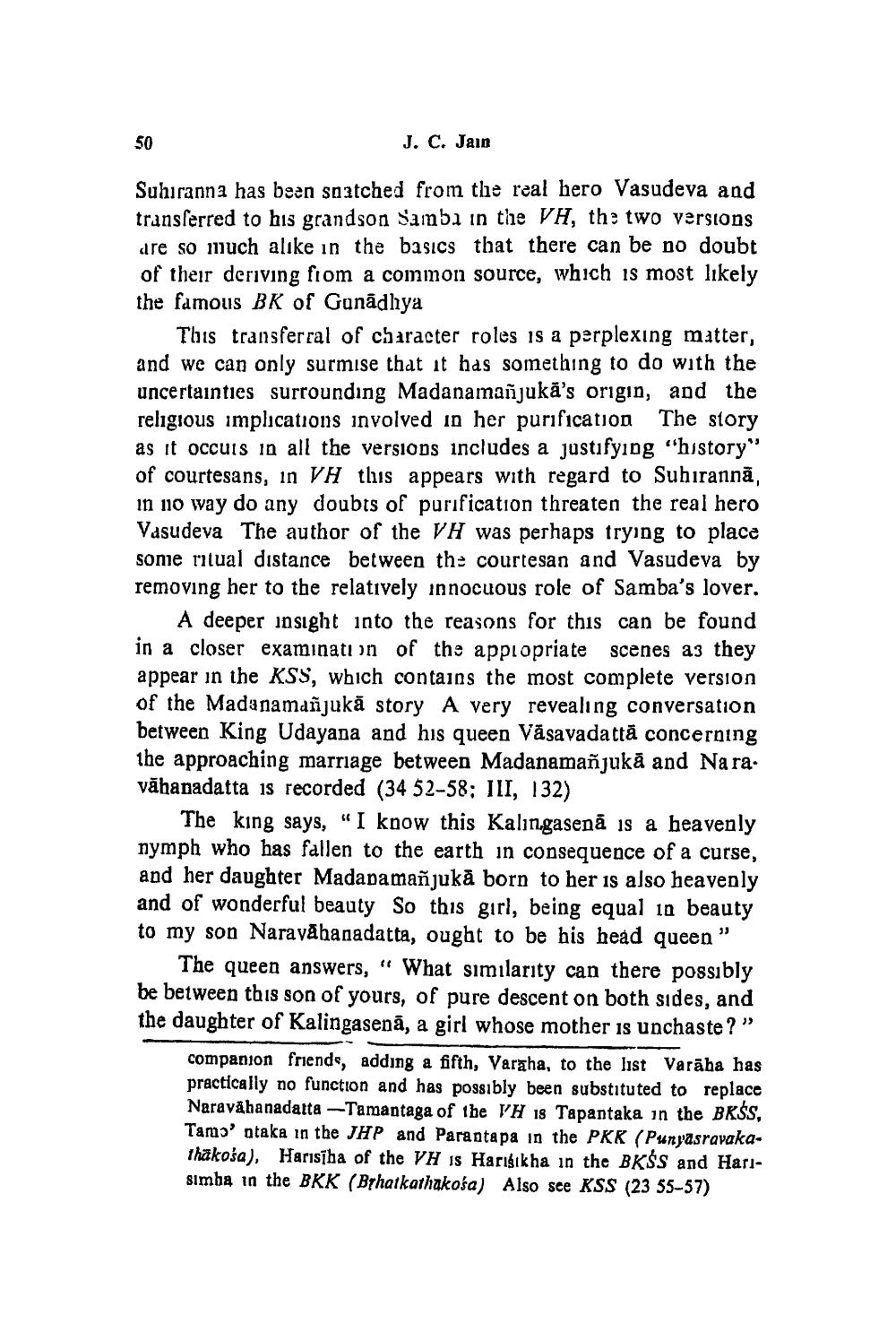________________
50
J. C. Jain
TI
Suhiranna has been soatched from the real hero Vasudeva and transferred to his grandson Samba in the VH, the two versions are so much alike in the basics that there can be no doubt of their deriving from a common source, which is most likely the famous BK of Gunadhya
This transferral of character roles is a perplexing matter, and we can only surmise that it has something to do with the uncertainties surrounding Madanamañjukä's origin, and the religious implications involved in her purification The story as it occurs in all the versions includes a justifying "history" of courtesans, in VH this appears with regard to Suhirannā, in 110 way do any doubts of purification threaten the real hero Vasudeva The author of the VH was perhaps trying to place some ritual distance between the courtesan and Vasudeva by removing her to the relatively innocuous role of Samba's lover.
A deeper insight into the reasons for this can be found in a closer examination of the appropriate scenes as they appear in the KSS, which contains the most complete version of the Madanamañjukā story A very revealing conversation between King Udayana and his queen Väsavadattă concerning the approaching marriage between Madanamañjukā and Na ra. vāhanadatta is recorded (34 52-58; III, 132)
The king says, “I know this Kalingasenā is a heavenly nymph who has fallen to the earth in consequence of a curse, and her daughter Madapamañjukā born to her is also heavenly and of wonderful beauty So this girl, being equal in beauty to my son Naravābanadatta, ought to be his head queen"
The queen answers, " What similarity can there possibly be between this son of yours, of pure descent on both sides, and the daughter of Kalingasenā, a girl whose mother is unchaste?”
companion friends, adding a fifth, Varaha, to the list Varāba has practically no function and has possibly been substituted to replace Naraváhanadatta-Tamantaga of the VH 18 Tapantaka in the BRSS, Tamo ataka in the JHP and Parantapa in the PKK (Punyasravakathakosa), Harissha of the VH is Harigikha in the BKSS and Harisimba in the BKK (Byhatkathakośa) Also see KSS (23 55-57)




